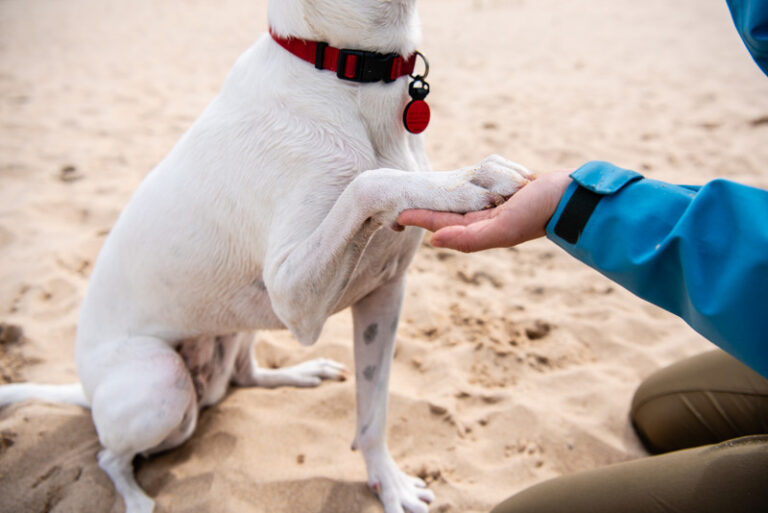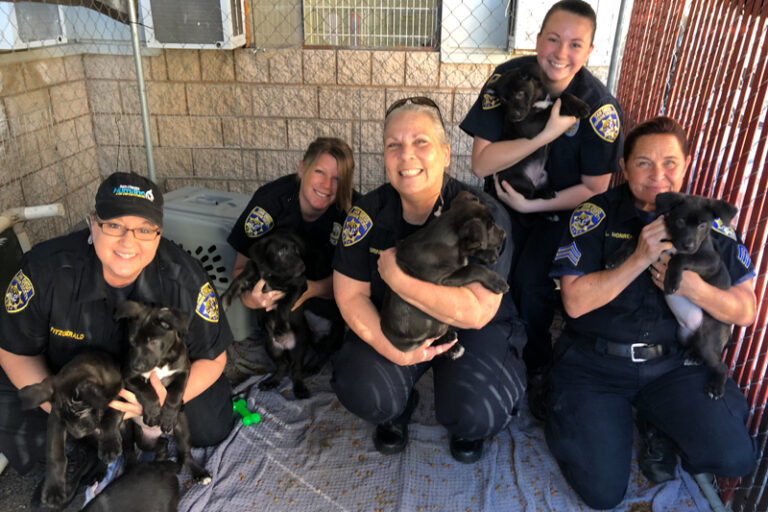Do Black people like animals? Hell yes, they do!
I’ve been thinking a lot this Black History Month. I did a Google search using the first part of this article’s title. What I found ranged anywhere from the offensive to the absurd. Opinions are all over the place regarding whether an entire group of people have a connection with animals, and the worst opinions are usually propagated by non-black people, who lack no understanding of black people or black culture. I don’t speak for all black people, so the best I can do is tell you my own story and give you a few impactful examples of black people and their pets in the United States. The first person I knew that loved dogs was my grandmother “Mimi.” Mimi always had a small dog that lived indoors. Poochie was her poodle and when I was in elementary school, Mimi made sure my siblings and I knew that Poochie was our cousin. I also remember my grandmother’s cousin, Cousin Ruby and her Chihuahua named Hitchhiker. One of my favorite things to do during family gatherings was to watch Hitchhiker pop out of Cousin Ruby’s purse to scare unsuspecting family members that wanted to greet Cousin Ruby with a hug. One day I’ll tell you the story of Hitchhiker having my siblings, cousins, and I trapped in Cousin Ruby’s bathroom, and I was volunteered to negotiate a truce with our furry little “cousin.”
I grew up in Detroit, Michigan in the 1970s and early 80s. My neighborhood, with the exception of a few white families, was all black people. Many families owned pets, mostly dogs. We had cats in our neighborhood that lived outdoors and were fed by different families. I also remember one day on Sussex street, a group of us kids realized a person had stored their German Shepherd in a vacant house and the dog was fighting to get out by chewing through one of the boarded up windows. To aid the desperate pooch, we helped knock the rest of the window out and freed it. After that adults got involved, the dog was taken into animal control and who knows what came of that courageous canine. However, seeing my neighborhood come together to make sure the animal was safe made a major impact on me and it’s stories like these that inspired my passion for the work I do. For someone who grew up around mostly black people, the stereotype that black people don’t like pets is antithetical to my experience and I’m sure that is true for many black people. The truth is that black people have a long and rich documented history of love animals, dating back to our period of enslavement and long before that.
I’ve taken the time to give you some examples from history.
- ”Six years into the Great Depression, the New York Amsterdam News reported that although nearly half of Harlem’s residents were receiving relief aid in some form, many residents still managed to keep pets, even if it meant sacrificing their own wellbeing: “the family pet lives in regal style…Dogs don’t go begging in Harlem.” The borough was able to support at least one veterinary clinic, as evidenced by a 1936 advertisement for the Harlem Dog and Cat Hospital offering worming, vaccinations, and free samples of dog food.”
- Harriet Tubman and Dogs: Harriet Tubman, the famed abolitionist and conductor of the Underground Railroad, was known to have a deep affection for dogs. During her missions to free slaves, Tubman often used dogs as companions and helpers, relying on them to alert her to danger and assist in navigating through difficult terrain.
- Frederick Douglass and His Dogs: Frederick Douglass, the renowned social reformer, abolitionist, and writer, was known to have a love for dogs. He frequently wrote about his pets in his autobiographies, mentioning his fondness for his dogs and their companionship throughout his life.
- George Washington Carver and His Garden Cats: George Washington Carver, the prominent scientist and inventor, had a special affinity for cats. He was known to have several cats as companions in his garden laboratory at Tuskegee Institute. Carver often spoke fondly of his cats and appreciated their presence as he conducted his research and experiments.








